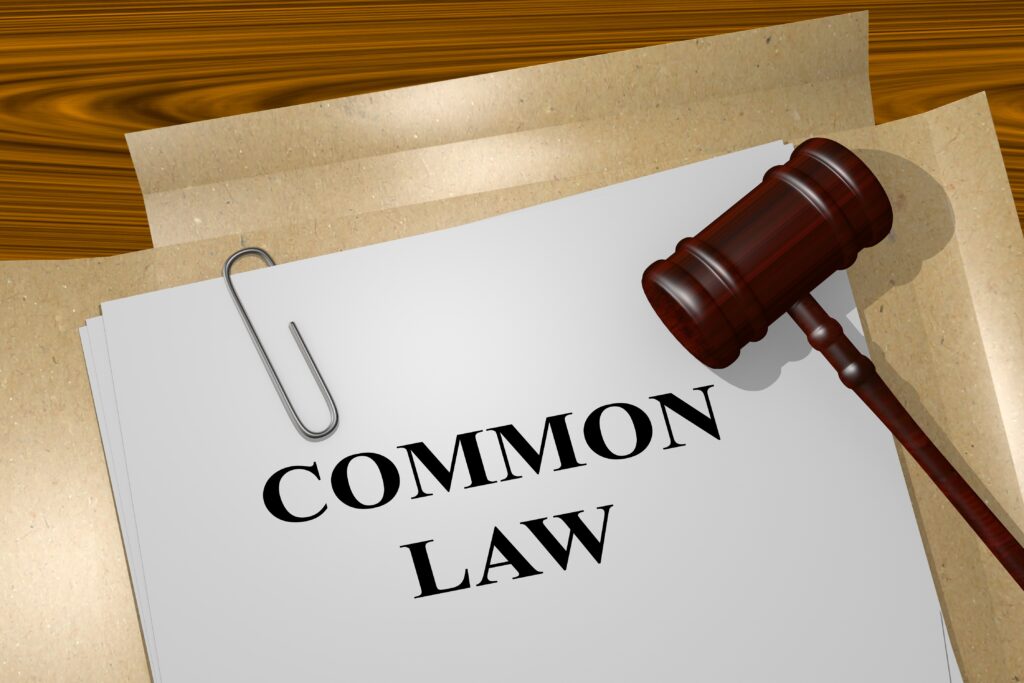People often think that if they live with their partner for a certain period of time, they will be considered married in the eyes of the law. However, this is not always the case. In Ohio, there is no such thing as common law marriage. If you want to get married, you need to go through a formal process. Read on to learn more about common law marriage in Ohio.
Contents
- 1 What Is Common Law Marriage?
- 2 Ohio Marriage Laws
- 3 Does Ohio Have Common Law Marriage?
- 4 How Do You Prove a Common Law Marriage in Ohio?
- 5 What Is the Legal Effect of Common Law Marriage?
- 6 What Are The Requirements For A Common Law Marriage In Ohio?
- 7 What Rights Do Common-Law Spouses Have In Ohio?
- 8 FAQ: Common Law Marriage In Ohio
- 8.1 When did common-law marriages end in Ohio?
- 8.2 Does common-law marriage have any effect on taxes in Ohio?
- 8.3 Are common-law spouses eligible for survivor benefits in Ohio?
- 8.4 Is common law marriage still in effect in Ohio?
- 8.5 What is a common-law wife entitled to?
- 8.6 What happens if your partner dies and you are not married?
- 8.7 Is a common-law wife entitled to half?
- 8.8 Are common law partners entitled to anything?
- 8.9 Does Ohio honor common law marriage?
- 8.10 What are the weaknesses of a common law relationship?
- 8.11 What supersedes a common-law rule?
- 9 Conclusion: Common Law Marriage In Ohio
What Is Common Law Marriage?
Common law marriage is a term used to describe when two people live together as if they are married, even though they have not gone through any formal process or obtained a license. Ohio does not recognize common law marriages. This means that even if you and your partner live together for years, the state will not consider you legally married unless you obtain a license.

Ohio Marriage Laws
In Ohio, marriage is regulated by the state. To be considered legally married in the eyes of the law, you must obtain a marriage license from your county probate court and have it signed by an officiant. You cannot just move in with someone and consider yourselves married without a license.
You must also meet certain requirements to be eligible for marriage. Both you and your partner must be at least 18 years of age, or if one of you is between 16 and 18, both parents must give written or notarized consent. If either party was married before, they must provide proof of the dissolution of the previous marriage.
Does Ohio Have Common Law Marriage?
No, Ohio does not recognize common law marriage in ohio. You must go through the formal process of obtaining a marriage license in order to be considered legally married in the eyes of the law. If you do not obtain a license and have an officiant sign it, you will not be considered legally married in the state of Ohio.
It is important to note that if you move out of state and have gone through a common law marriage process, Ohio may still recognize the marriage. This is because other states may have different laws regarding marriage and Ohio will recognize marriages if they are valid in another state.
So while it is not possible to be married through common law in Ohio, if you move out of state and go through the process, your marriage will be recognized in Ohio.
It is also important to note that if you live together without being married, you may still have rights and responsibilities similar to those of a married couple. This is known as cohabitation and can be complicated, so it is best to speak with a lawyer if you have questions about your rights and responsibilities.
In conclusion, Ohio does not recognize common law marriage. If you want to be legally married in the state of Ohio, you must obtain a marriage license from your county probate court and have it signed by an officiant. You will also need to meet certain eligibility requirements such as age and proof of dissolution for any previous marriages.
How Do You Prove a Common Law Marriage in Ohio?
Since Ohio does not recognize common law marriage, you cannot use it as a way to prove your marital status. In order to prove that you are married in the state of Ohio, you will need to obtain a certified copy of your marriage license from the issuing county probate court. This document will serve as legal proof of your marital status.
In summary, common law marriage is not recognized in Ohio and you cannot use it as a way to prove your marital status. To be legally married in Ohio, you must obtain a marriage license from your county probate court and have it signed by an officiant. Once the license has been obtained, you can get a certified copy of the license from the issuing court as proof of your marital status.
What Is the Legal Effect of Common Law Marriage?
Common law marriage in ohio is not recognized in Ohio, so there are no legal effects associated with it. The only way to get the legal rights and responsibilities of married couples is by obtaining a marriage license from an issuing county probate court and having it signed by an officiant.
It is important to note that even if you don’t obtain a marriage license, you may still have rights and responsibilities similar to those of a married couple if you live together with another person. This is known as cohabitation and can be complicated, so it is best to speak with a lawyer if you have questions about your rights and responsibilities.

What Are The Requirements For A Common Law Marriage In Ohio?
Since common law marriage is not recognized in Ohio, there are no requirements for it. The only way to be legally married in the state of Ohio is by obtaining a marriage license from an issuing county probate court and having it signed by an officiant. If you do not meet the eligibility requirements for a marriage license, such as age or proof of dissolution of a previous marriage, you will not be able to obtain one.
What Rights Do Common-Law Spouses Have In Ohio?
Since common law marriage is not recognized in Ohio, there are no rights associated with it. The only way to get the legal rights and responsibilities of married couples is by obtaining a marriage license from an issuing county probate court and having it signed by an officiant.
If you do not obtain a marriage license, you may still have rights and responsibilities similar to those of a married couple if you live together with another person. This is known as cohabitation and can be complicated, so it is best to speak with a lawyer if you have questions about your rights and responsibilities.
In conclusion, common law marriage is not recognized in Ohio and thus has no legal effect or associated rights. The only way to be legally married in Ohio is by obtaining a marriage license from an issuing county probate court and having it signed by an officiant. It is also important to understand that even without a marriage license, you may have certain rights and responsibilities if you live with another person, so speak with a lawyer if you have any questions.

FAQ: Common Law Marriage In Ohio
When did common-law marriages end in Ohio?
Common law marriage was never recognized in Ohio, so it has never been a legal option. The only way to be legally married in Ohio is by obtaining a marriage license from an issuing county probate court and having it signed by an officiant.
Does common-law marriage have any effect on taxes in Ohio?
Since common law marriage is not recognized in Ohio, there are no associated tax implications. The only way to get the legal rights and responsibilities of married couples is by obtaining a marriage license from an issuing county probate court and having it signed by an officiant.
Are common-law spouses eligible for survivor benefits in Ohio?
Since common law marriage is not recognized in Ohio, common-law spouses are not eligible for any survivor benefits. The only way to get the legal rights and responsibilities of married couples is by obtaining a marriage license from an issuing county probate court and having it signed by an officiant.
Is common law marriage still in effect in Ohio?
No, common law marriage is not recognized in Ohio and thus has no legal effect or associated rights. The only way to be legally married in Ohio is by obtaining a marriage license from an issuing county probate court and having it signed by an officiant. If you do not meet the eligibility requirements for a marriage license, such as age or proof of dissolution of a previous marriage, you will not be able to obtain one.
What is a common-law wife entitled to?
Since common law marriage is not recognized in Ohio, a common-law wife is not entitled to any rights or responsibilities associated with a married couple. The only way to get the legal rights and responsibilities of married couples is by obtaining a marriage license from an issuing county probate court and having it signed by an officiant.
What happens if your partner dies and you are not married?
If your partner dies and you are not legally married, you may still have certain rights and responsibilities. This is known as cohabitation and can be complicated, so it is best to speak with a lawyer if you have questions about your rights and responsibilities. In addition, even without a marriage license, there may still be legal obligations that need to be met such as paying taxes, handling debts or notifying certain agencies. It is important to understand that without a marriage license, you are not entitled to any of the legal rights and responsibilities of married couples. Therefore, it is best to speak with a lawyer if you have questions about your rights and responsibilities.
Is a common-law wife entitled to half?
Since common law marriage is not recognized in Ohio, a common-law wife is not entitled to any rights or responsibilities associated with a married couple. The only way to get the legal rights and responsibilities of married couples is by obtaining a marriage license from an issuing county probate court and having it signed by an officiant. Therefore, a common-law wife is not entitled to any portion of the assets owned by a couple.
Are common law partners entitled to anything?
Since common law marriage is not recognized in Ohio, common law partners are not entitled to any rights or responsibilities associated with a married couple. The only way to get the legal rights and responsibilities of married couples is by obtaining a marriage license from an issuing county probate court and having it signed by an officiant. Therefore, common law partners are not entitled to any of the assets owned by a couple. They may, however, be able to make claims for spousal support or alimony depending on the particular circumstances. It is important to speak with an experienced lawyer to determine if you are eligible for any type of support.
Does Ohio honor common law marriage?
No, Ohio does not recognize common law marriage. The only way to get the legal rights and responsibilities of married couples is by obtaining a marriage license from an issuing county probate court and having it signed by an officiant. If you do not meet the eligibility requirements for a marriage license, such as age or proof of dissolution of a previous marriage, you will not be able to obtain one. Therefore, common law marriage is not recognized in Ohio and does not have any legal effect or associated rights. It is important to speak with an experienced lawyer if you are unsure of your legal rights and responsibilities.
What are the weaknesses of a common law relationship?
Common law relationships are not legally recognized in Ohio and therefore do not confer any of the legal rights or responsibilities associated with a marriage. This means that if one partner passes away, the other may not be entitled to any financial support or inheritance from their deceased partner, nor will they have any say over decisions regarding funeral arrangements or estate distribution.
What supersedes a common-law rule?
In Ohio, the only way to get the legal rights and responsibilities of married couples is by obtaining a marriage license from an issuing county probate court and having it signed by an officiant. Therefore, any law or rule related to common law marriage will be superseded by the protections afforded to legally married couples. If you are unsure of your legal rights and responsibilities in a common law relationship, it is important to speak with an experienced lawyer. This will ensure that all of your legal rights are recognized and protected. It is also important to understand that without a marriage license, you are not entitled to any of the legal rights or responsibilities of married couples.
Conclusion: Common Law Marriage In Ohio
Common law marriage is not recognized in Ohio. The only way to get the legal rights and responsibilities of married couples is by obtaining a marriage license from an issuing county probate court and having it signed by an officiant. Without this, common-law partners are not entitled to any of the assets owned by a couple, nor any spousal support or alimony. Additionally, any law or rule related to common law marriage is superseded by the protections afforded to legally married couples. It is important to speak with an experienced lawyer if you are unsure of your legal rights and responsibilities in a common law relationship. This will ensure that all of your legal rights are recognized and protected.
Scott A. Bentley Attorney at Law in McHenry, IL is a debt relief and personal injury attorney dedicated to helping people in their time of need. He can assist in filing bankruptcy under the bankruptcy code or work with you through a personal injury case. His more than 25 years of experience provide him with the insight and knowledge you need when contending with difficult legal issues. Scott Bentley bankruptcy services stop: Creditor harassment, Lawsuits, Garnishments, Foreclosures, Repossessions, By filing for chapter 7 or 13 bankruptcy with Scott Bentley, you’ll also be able to create personal reorganization plans that serve to resolve individual bankruptcy issues. He and his staff are committed to providing you with dignified service and the respect you deserve. Just because you owe someone or some company money doesn’t mean you forfeit your rights. With Mr. Bentley you can be sure you will receive personalized attention and aggressive legal representation. The firm is proud to

